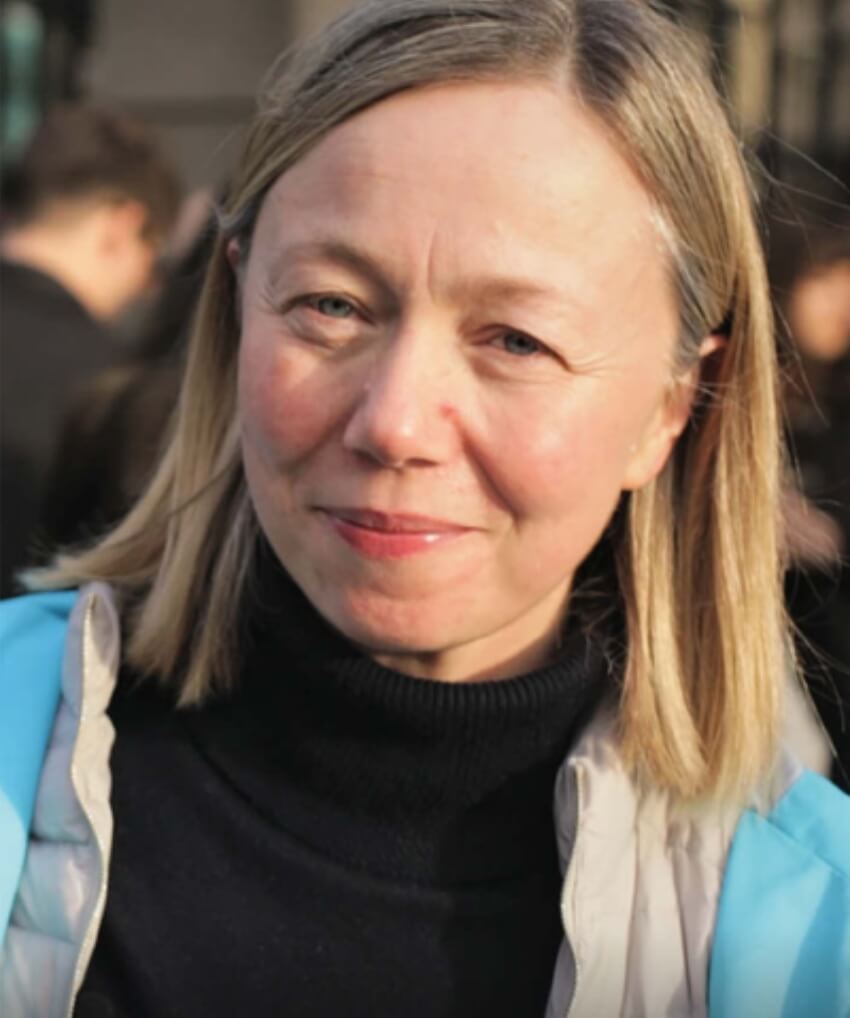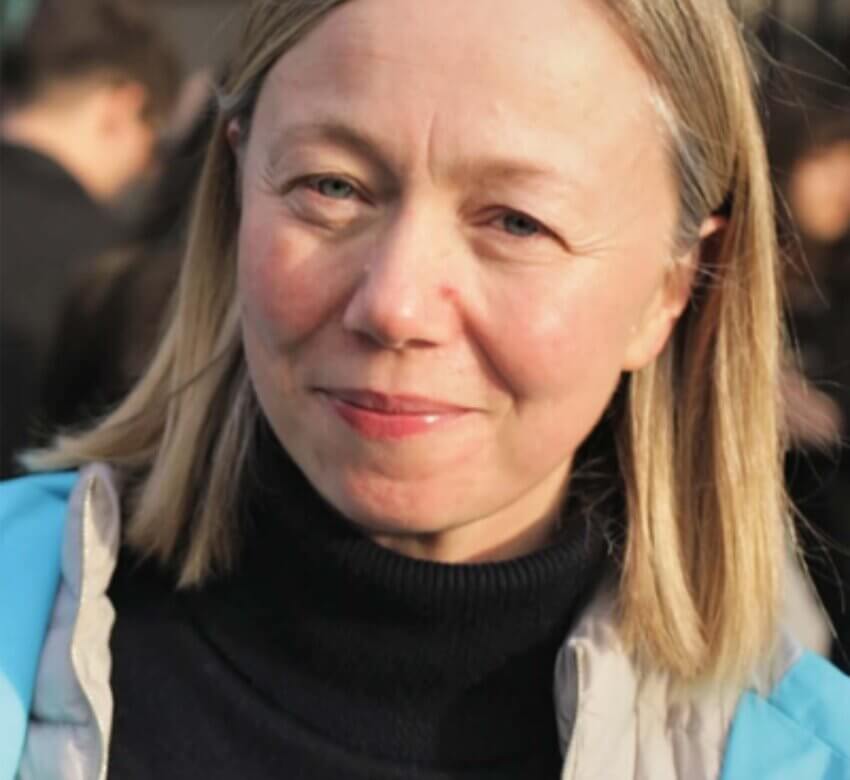Glasgow, COP26: Fear, Faith and Survival
Tomás Insua, Rome
Volume 35 Issue 10, 11 & 12 | Posted: December 21, 2021

At the start of COP26, the Pope called for world leaders “to act urgently, courageously and responsibly”. With blunt honesty, Francis shared what is at stake as our sisters and brothers, and every member of God’s Creation around the world, suffer from the ecological crisis and the climate emergency.
“The lives of countless people, particularly those who are most vulnerable, have experienced increasingly frequent and devastating effects,” he said. “At the same time, we have come to realise that it also involves a crisis of children’s rights and that, in the near future, environmental migrants will be more numerous than refugees from war and conflicts.”
The summit concluded last week, and regretfully, world leaders have again fallen short of Pope Francis’ and many others’ hopes for what would emerge. More frequent meetings and a shy commitment to phase out fossil fuels are steps forward. But they are akin to pouring a glass of water on a raging house fire.
he COP26 agreement doesn’t do enough to combat the climate crisis, and the existing national climate plans, known as Nationally Determined Contributions, come nowhere close to addressing the climate emergency we’re already experiencing. We are on a trajectory that will soon blow up the threshold of a 1.5ºC increase, which scientists have warned would be catastrophic on various fronts.
Come next year, new coal mines, oil pipelines and gas terminals will still be constructed. Countries will still be planning on burning too many fossil fuels for decades to come, the very fossil fuels that are the main cause of this climate emergency, and of eight million deaths annually. It’s simply outrageous.
It’s shameful that in the UK, for example, there is still talk about a new coal mine in Cumbria, and the Government continues to support the expansion of oil drilling in the North Sea. It’s a slap in the face of the people in poor countries who are being ravaged by the climate crisis.
Just before COP ended, 60 Catholic organisations issued a joint statement demanding that the Glasgow deal deliver “a clear pathway forward to a just transition away from an extractive economy based on fossil fuels”. Sadly, that didn’t happen. The final document also failed to deliver on other important sticking points in the negotiations, such as a transfer of climate finance from rich countries to poor ones and compensation for climate impacts in the most vulnerable countries.
Youth activists have criticised the COP outcomes as “Blah, blah, blah”. They are right. As Pope Francis said before COP26: “We need to be honest: this cannot continue!” We must stop this self-destructive behaviour if we want to avoid catastrophic effects to God’s Creation.
Christians are called to prophetically live out their faith, and care for our most vulnerable sisters and brothers. Advocating for, and creating, a cleaner and more resilient future is what our faith calls us to do right here and right now. “Living our vocation to be protectors of God’s handiwork is essential to a life of virtue; it is not an optional or a secondary aspect of our Christian experience” (Laudato Si’, 217).
It isn’t all doom and gloom. Members of the Laudato Si’ Movement who were on the ground in Glasgow have seen far too much progress to lose hope. The outcome was not what I and other activists and campaigners had hoped for, but the activities, marches and meetings outside those hallways showed me that the movement to care for our common home is stronger than ever and will not be stopped.
As Pope Francis wrote in Laudato Si’, “injustice is not invincible”. People of faith are working together more closely than ever. There is a growing understanding that we, making up some 80 per cent of the world’s population, have real power to change our communities and the world with our prayers and actions. And it’s the people at the grass roots, people like you and me and our neighbours, who will really drive the changes needed, by making a difference at community and local level and by applying pressure on our leaders until they help bring the vision of Laudato Si’ to life throughout the world. Where does this hope come from? We saw it in Glasgow on 6 November, as our members, along with other Catholic activists and other people of faith, marched alongside more than 100,000 people in the Global Day of Action for Climate Justice. We saw hope in the faces of fellow demonstrators as they trudged through the rain and fended off gusts of winds to demand climate justice and show world leaders that nothing can stop the broader faith-based movement and even broader social movement to save God’s Creation. “What do we want? Climate justice! When do we want it? Now!” they chanted.
We saw it in 67-year-old Isabella Harding, a Catholic grandmother of three who, alongside young people a third of her age, participated in the historic march. More than a decade before Pope Francis wrote Laudato Si’, Harding was teaching high-school students about the importance of caring for God’s Creation as a religious education teacher in Bristol.
Now she’s a retired teacher and a Laudato Si’ Animator, and hers is a type of activism that will be key to ending the climate crisis: contemplative activism, or, as we like to say, “contempl-activism”. Harding prays the Laudato Si’ Chaplet every day, contemplating the beauty of Creation and reciting words from Francis of Assisi’s “Canticle of the Creatures”, praising God through Brother Air and Sister Water. She completed the Laudato Si’ Animators training programme last year, which connects thousands of like-minded Catholics and helps them better understand Laudato Si’ and the root causes of the ecological crisis.
At the end of the programme, they lead their community in taking action for our common home. When Harding wasn’t marching in the rain, she was praying for hours and participating in COP26 vigils. “I do everything I can,” she said.
We also saw hope in Benson Makusha, the pan-African coordinator for the International Young Catholic Students, who works with young people in 34 countries throughout Africa, which is experiencing the climate crisis through more extreme weather, including longer droughts and more intense heatwaves. Makusha hears and sees the worries that young people have about the degradation of our common home. “There is a lot of worry and a lot of anxiety from the young people because they are not sure what their future is going to be,” he said. “Everything is at stake here.” He was in Glasgow advocating for the students he represents: “We need to get our voices heard.”
We also witnessed the growing movement to protect God’s Creation across various interfaith events on the outskirts of COP26. Faith leaders from across the globe were encouraging everyone to do what they can where they are. “The movers and shakers are right here, not in the blue zone [where government negotiators meet],” Rajwant Singh, the founder of EcoSikh, reminded us. “Jesus Christ did not wait for the Roman Empire.”
We don’t have to wait for world leaders, for community leaders, or for anyone. The time to act and demand further action on the global scale is now. The burgeoning movement can be seen in the prophetic actions of Catholic institutions and everyday Catholics. More than 120,000 Catholics, along with more than 425 Catholic institutions, collectively representing hundreds of thousands of Catholics, signed the Healthy Planet, Healthy People petition.
This called on governments to set ambitious targets that would tackle the climate emergency and biodiversity crisis together; limit warming to 1.5C and promise no more biodiversity loss; ensure equitable global action; and protect and respect human rights, including the rights of Indigenous Peoples and local communities.
These targets weren’t met at COP26, but activism around those demands will continue ahead of the UN’s biodiversity conference, which is scheduled to take place from 25 April to 8 May next year in Kunming, China.
Faith-based institutions are also leading the way. Days before COP26 began, 72 faith-based institutions, including 55 Catholic institutions from around the world united for the largest-ever joint divestment from fossil fuels announcement. The institutions from six continents have more than $4.2 billion (£3.1bn) of combined assets under management, and were part of a larger divestment coalition representing over $39 trillion in assets.
“Of course divestment is not the last word in this story by a long shot. We need to engage in a just transition,” said Lorna Gold, chair of the Laudato Si’ Movement Board. “We’re at the start of a very long journey in terms of using divestment as a springboard to systemic change. But I think that the key thing here is that faith matters, faith institutions matter. Faiths are major stakeholders in the financial world and what we as faiths do can send a huge prophetic message and also a substantial financial message.”
Becoming a Laudato Si’ Animator, marching at COP26, or even divesting from fossil fuels, will not be enough on their own. But they are all important steps on the journey that will end one day in climate justice, even if at times that seems so far away, given all the “Blah, blah, blah”.
Tomás Insua is the co-founder and executive director of the Laudato Si’ Movement
See also article by Andrew Conradi, in Other News entitled “The Faith Role: Glasgow March for ‘Global Day of Climate Action’”.
Tomás Insua, Rome

